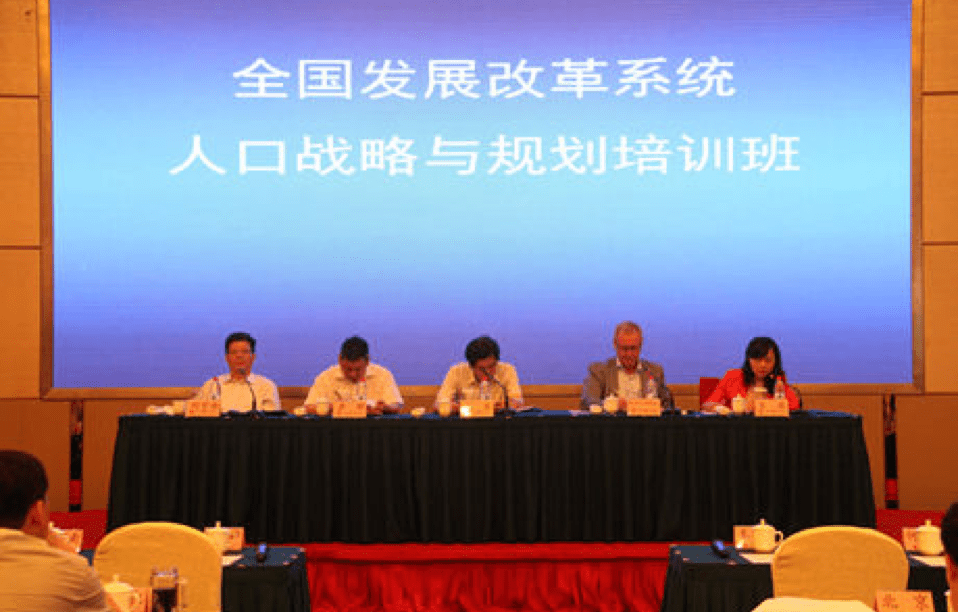In order to enhance the capacity on population strategy planning, the National Development and Reform Commission (NDRC), the top decision-making entity in the Chinese government, organized a national workshop to train senior government officials on population strategy and planning from 25-26 June in Changsha. Around 120 senior officials from 31 provincial development and reform commissions in charge of population and development planning attended this training.
The United Nations Population Fund (UNFPA) China, NDRC’s long-term partner in the area of population and development, was invited to provide technical inputs to this important policy-oriented workshop, particularly in providing international perspectives on population dynamics.
Experts from the National Bureau of Statistics of China (NBS), Zhejiang University, China Population and Development Research Center (CPDRC) were also invited to cover topics ranging from population situation analysis in China since the 6th national census, relationship between population dynamics and economic growth, local practices and experiences in household registration (Hukou) reform, and the application of the population projection software PADIS-INT software, etc.
Mr. Wang Wei, Director General, Department of Social Development of NDRC, emphasized the timeliness of this nationwide NDRC training workshop on population strategy and planning with regards to its potential impact on the drafting process of the 13th Five-Year Social and Economic Development Plan at both national and provincial levels. He advised the provincial development and reform commissions to set high priority on population and development issues in China given their crucial roles in social-economic development. He also pointed out the importance of improving learning and knowledge sharing in this area among policy makers at all levels.
Mr. Arie Hoekman, UNFPA Representative to China, stressed that population dynamics and their complex interactions with socio-economic development and the environment is essential to ensure people-centered development. “The global recognition that fulfilling the rights of individuals is central to development was made in Cairo in 1994, at the International Conference on Population and Development (ICPD),” he said, “Twenty years later, the ICPD consensus was reinforced by the international community and UNFPA commits to work with our partners to put population dynamics as an intrinsic part of development policies, strategies and plans.”
Mr. Arie Hoekman echoed Mr. Wang Wei in the timeliness of organizing this workshop, when China is formulating its 13th Five Year National Economic and Social Development Plan, and when the world is preparing to conclude the Millennium Development Goals and launch the future Post-2015 development agenda at the UN Summit in September in New York.
During the workshop, Mr. Arie Hoekman also shared a comprehensive presentation on population and sustainable development issues from an international perspective, covering ageing, urbanization, gender, and reproductive health issues. In addition to the crucial role of population dynamics in the policy formulation and the development planning process in the quest for sustainable development, he also called for further investment in sexual and reproductive health area and in youth development.
Before the workshop, Mr. Wang Wei, Director General, Department of Social Development of NDRC, and Mr. Arie Hoekman, Representative of UNFPA China met briefly to exchange views on strengthening future collaboration of the two sides. Building on the good partnership over the past 6 years in urbanization, NDRC and UNFPA will work closely on population and development strategies both in China, and will seek to expand international exchanges with other countries. UNFPA will continue to provide technical support to NDRC and other partners to respond to emerging issues such as ageing, equitable society, and urbanization and migration etc. UNFPA also stands ready to support China in its South-South initiatives in the areas of population and development.
UNFPA started its collaboration with NDRC in 2009, and over the years has covered various issues of urbanization and national planning related to population and development, including comprehensive policy research on key population and development issues in order to inform the planning of the National 13th Five-year Social and Economic Development Plan.


